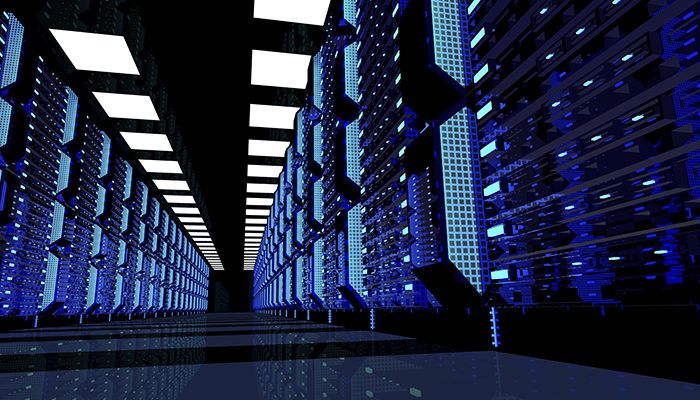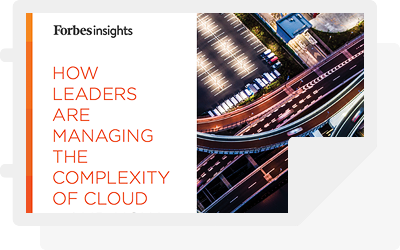The decision to move, expand or consolidate your data center is one that must be weighed in the context of cost, operational reliability and of course, security. With these considerations in mind, more companies are finding that colocation offers the solution they need without the hassle of managing their own data center.
Also known simply as “colo,” data center colocation refers to a service provided by companies that offer a shared, secure space for enterprise businesses to store hardware related to data storage and other equipment.
The enterprise customer engages with the colo company in a way that is similar to a rental relationship with a property manager whereby a customer rents space in the facility to store equipment.
The customer usually supplies the equipment: servers and other hardware necessary for daily operations. And the colo company stores it securely in a cool, monitored environment ideal for servers, while ensuring bandwidth needs are met. The data center offers tiers of service that guarantee a certain amount of uptime.
Enterprise Benefits of Data Center Colocation
Data center colocation could be the right choice for any business of any size, in any industry.
Uptime
The advantage that draws enterprise businesses into data center colocation is server uptime. By buying into a specific tier, each enterprise server client is guaranteed a certain percentage of uptime without the payroll cost to maintain or other maintenance fees.
- Tier 1 DCs have a 99.671% uptime percentage per year. Maximum total yearly downtime = 1729.2 minutes or 28.817 hours each year
- Tier 2 DCs have a 99.741% uptime percentage per year. Maximum total yearly downtime = 1361.3 minutes or 22.688 hours
- Tier 3 DCs have a 99.982% uptime percentage per year. Maximum total yearly downtime = 94.6 minutes or 1.5768 hours
- Tier 4 DCs have a 99.995% uptime percentage per year. Maximum total yearly downtime = 26.3 minutes or 0.4 hours
Risk Management
Businesses who use data centers as a data recovery strategy are doing so to mitigate risk in the case of an external event (such as a natural disaster) or outage. Utilizing a colocation facility ensures business continuity in the event of a major disaster. This means that if your business location loses power, your network traffic will not be affected.
The key is redundancy. The layers of redundancy offered at a data center colocation are far more complex than many companies can afford in-house.
Some enterprise companies will consider the off-site location as their primary data storage location while maintaining onsite copies of data as backup.
Security
Data centers are equipped with the latest in security technology including cameras and biometric readers, check-in desks that welcome inbound visitors and check for security badges are commonplace. These facilities are monitored 24/7/365, both in the physical world and on the cloud to ensure that unauthorized access does not occur.
Cost
One of the main advantages of colocation is that it results in significant cost savings especially when measured against managing a data center in-house. This means that for many companies, renting the space they need from a data center offers a practical solution to ever-shrinking IT budgets. With colocation, there is no need to worry about planning for capital expenditures such as UPS (uninterrupted power source), multiple backup generators, power grids and HVAC units.
Apart from these capital expenditures, there are also ongoing maintenance costs associated with maintaining and managing an in-house server.
Bandwidth
Colos issue the bandwidth that enterprise client servers need to function properly. With large pipes of bandwidth to power multiple companies, data center colocations are primed to support businesses in a way their office location likely cannot.
Support and Certifications
When you partner with a data center colocation, your enterprise business may be able to reduce potential payroll costs by relying on the data center experts to manage and troubleshoot major pieces of equipment. Enterprise businesses can rely on expert support from experts who are certified to help. As such, colocation offers the benefit of peace of mind.
Scalability
As your business grows, you can easily expand your IT infrastructure needs through colocation.
Different industries will have different requirements in terms of the functionalities they need from their data center as it relates to space, power, support and security. Regardless, your service provider will work with you to determine your needs and make adjustments quickly.
In-House Data Center Management Versus Data Center Colocation
While data center outsourcing offers many benefits, some enterprise organizations may still prefer to manage their own data centers for a few reasons.
Control Over Data
Whenever you put important equipment in someone else’s charge, you run the risk of damage to your equipment and even accidental data loss. Fortunately, data centers are set up with redundancy and other protocols to reduce the likelihood of this occurring, as discussed above. But some enterprise businesses with the knowledge and resources to handle data in-house, feel more comfortable with being liable for their own servers.
They also benefit from being able to fix server issues immediately when they occur. Enterprise businesses who seek to outsource instead must work closely with their service providers to ensure issues are resolved in a timely manner.
Contractual Constraints
Enterprise business owners may find that they are unpleasantly surprised by the limitations of the contract between their company and a colo facility. Clauses that include vendor lock-in, contract termination or nonrenewal and equipment ownership may not meet their needs.
Choosing a Data Center
Here are eight considerations that enterprise IT Directors should think about before moving their data to co-located data facility.
- Is the agreement flexible to meet my needs?
- Does the facility support my power needs, current and future?
- Is the facility network carrier neutral? Or does it offer a variety of network carriers?
- Is it the best location for my data? Accessible? Out of the way of disaster areas?
- Is the security up to my standards?
- Is the data center certified with the Uptime Institute?
- Does my enterprise business have a plan for handling transitional costs?
- Is this data center scalable for future growth?
If an enterprise business leader can answer ‘yes’ to all of the above questions it may be the right time to make the change.
What’s Next for Data Center Colocation?
The biggest push in the industry comes from cloud service providers who use colo as a way to meet their hefty equipment storage needs. At the same time, the industry has been and will continue to remain fluid as laws change with regard to cloud storage requirements.
While soaring demand from cloud service providers has made the need for data center colocation increase, new technology offers rack storage density options that allow colo facilities to mitigate the demand for hardware space.
A recent report by JLL suggests the above reasons will send data center colocation companies into rapid growth mode through 2021. And as the demand for colo increases, so too will the need for virtual and physical security. Indeed, the ability to ensure the highest standards of security, will be one of the linchpins that keeps data centers on the cusp of new technology going forward.
BMC: Your Data Management Solution
BMC offers a suite of automated data management solutions for in-house or co-located servers. More specifically, BMC’s BladeLogic Server Automation offers the best in security to provide peace of mind for enterprise business leaders.
BladeLogic’s support includes helping enterprise businesses:
- Achieve compliance with policies for CIS, DISA, HIPAA, PCI, SOX, NIST and SCAP.
- Increase IT efficiency with an intelligent, closed loop for automated remediation
- Reduce the time required to assess the impact of change and develop remediation plans
- Reduce deployment failures, and manage complexity and scalability across environments
For more information on how BladeLogic can assist your organization to meet its data management needs, contact us today.







